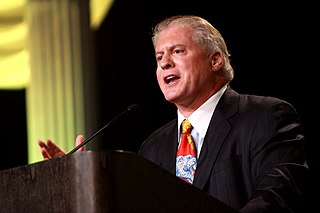A Quote by Noam Chomsky
There are a lot of people that form movements around particular commitments, like gay rights. It is important, but it does not link easily to, say, economic rights, and it often looks like it's opposed to them. The attempt to bring these together has yet to be done in a truly effective way, and I think it can be.
Related Quotes
I think all Americans believe in human rights. And health is an often overlooked aspect of basic human rights. And it's one that's easily corrected. The reason I say that is that many of the diseases that we treat around the world, I knew when I was a child. My mother was a registered nurse. And they no longer exist in our country.
Rights mean you have a right to your life. You have a right to your liberty, and you should have a right to keep the fruits of your labor....I, in a way, don’t like to use those terms: gay rights, women’s rights, minority rights, religious rights. There’s only one type of right. It’s the right to your liberty.
You have to join every other movement for the freedom of people. Therefore join the movement as individuals against anti-Semitism, join the movements for the rights of Hispanics, the rights of women, the rights of gays. In other words, I think that each movement has to stand on its own feet because it has a particular agenda, but it can ask other people.
Abortion is a states' rights issue. Education is a states' right issue. Medicinal marijuana is a states' rights issue. Gay marraige is a states' rights issue. Assisted suicide- like Terri Schiavo- is a states' rights issue. Come to think of it, almost every issue is a states' rights issue. Let's get the federal government out of our lives.
Some people ask, 'Why the word 'feminist'? Why not just say you are a believer in human rights, or something like that?' Because that would be dishonest. Feminism is, of course, part of human rights in general - but to choose to use the vague expression 'human rights' is to deny the specific and particular problem of gender.
Some people ask: "Why the word feminist? Why not just say you are a believer in human rights, or something like that?" Because that would be dishonest. Feminism is, of course, part of human rights in general-but to choose to use the vague expression human rights is to deny the specific and particular problem of gender. It would be a way of pretending that it was not women who have, for centuries, been excluded. It would be a way of denying that the problem of gender targets women.





































